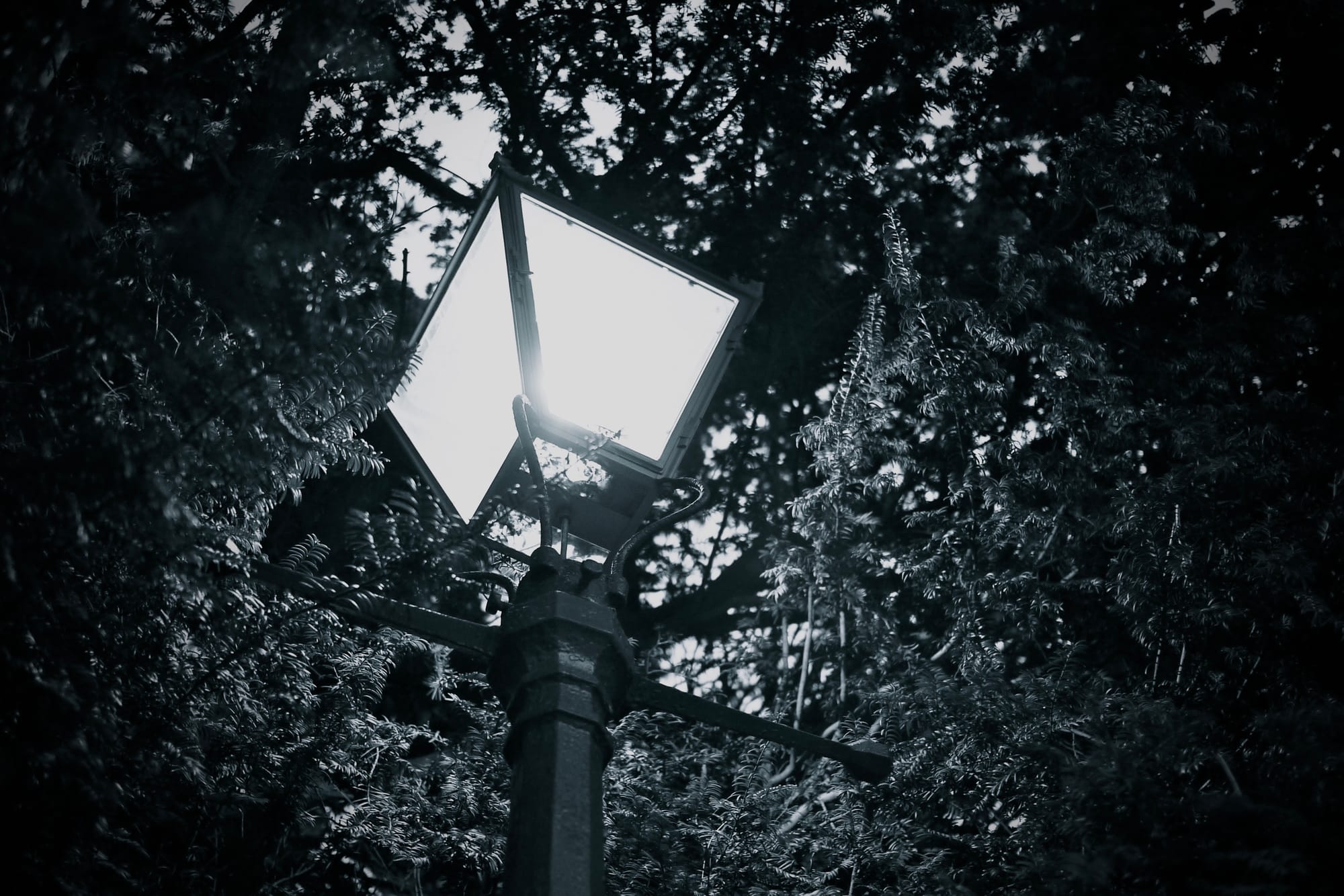Darkness, my old friend
A pre-dawn dog walk stirred thoughts about how society resists the close embrace of darker nights.

It was 6am, and I’d been walking on the hills for an hour before I passed another person. They were easy to spot; their headtorch beaming thousands of lumens onto the path as they strode towards me. Close up, the light was blinding, and I had to raise a hand to shield my eyes. My fellow walker didn’t seem to notice my discomfort, or to care.
But why did they feel the need for such a bright light? Why come out in the darkness, only to deny its existence? I’d walked torchless miles on these paths precisely because I wanted to feel the darkness around me. Maybe this makes me a bit odd. Transgressive, at least.
Light is a powerful symbol in religion and culture. Its divine presence shines enlightenment upon believers, warding off the sin that lurks in the shadows. So it follows that to seek out darkness is to look for trouble, or at least to exist for a few hours beyond the gaze of polite society.
In Cider with Rosie, Laurie Lee recalls playing ‘games in the moon … games that the night demanded’. A favourite was called Fox and Hounds:
Two chosen boys loped away through the trees and were immediately swallowed in shadow. We gave them five minutes, then set off after them. They had churchyard, farmyard, barns, quarries, hilltops, and woods to run to. They had all night, and the whole of the moon, and five miles of country to hide in...
For Lee and his friends, darkness was freedom. In the daylight, adults would have been at work in these places and unlikely to welcome a marauding pack of boys. At night, children could reclaim them as their own, beyond the control of adults.
Does control explain our obsession with turning night into day? We’ve conquered the very thing – darkness – which used to determine how we spent our time: when we slept and when we woke, when we worked and when we rested. Now we can spend it online until the early hours.
But, ironically enough, given how much we love lighting, there’s something we haven’t seen coming. The cumulative effect of all our light pollution means that we’re sacrificing our children’s chances of seeing the stars when they’re grown up.
In 2023, Christopher Kyba of the German Centre for Geosciences showed that light pollution is causing the night sky to brighten at a rate of around 10% a year. A child born where 250 stars were visible at night when Kyba published his research will only be able to see about 100 by the time they reach 18 years old.
‘To walk for hours on a clear night is the largest experience we can have,’ wrote Thomas A Clark in his poem ‘In Praise of Walking’. Why would we deny our children that experience?
Why would we not want them to walk under stars, exploring a landscape rendered unfamiliar by the hard-shadowed moonlight? Why would we not invite them to share the world of the bat, the owl and the badger?
There are some good reasons to light the darkness – safety, for one. But there are many bad ones too. And often, there is no reason at all. We do it just because we can, because LED lighting is cheap and powerful.
Well, darkness is powerful too and we will feel its loss deeply. We need to realise this before it’s too late.
Get updates by email
Sign up for FREE and treat your inbox to thoughtful writing about life on foot and awheel. No spam. Unsubscribe anytime.

